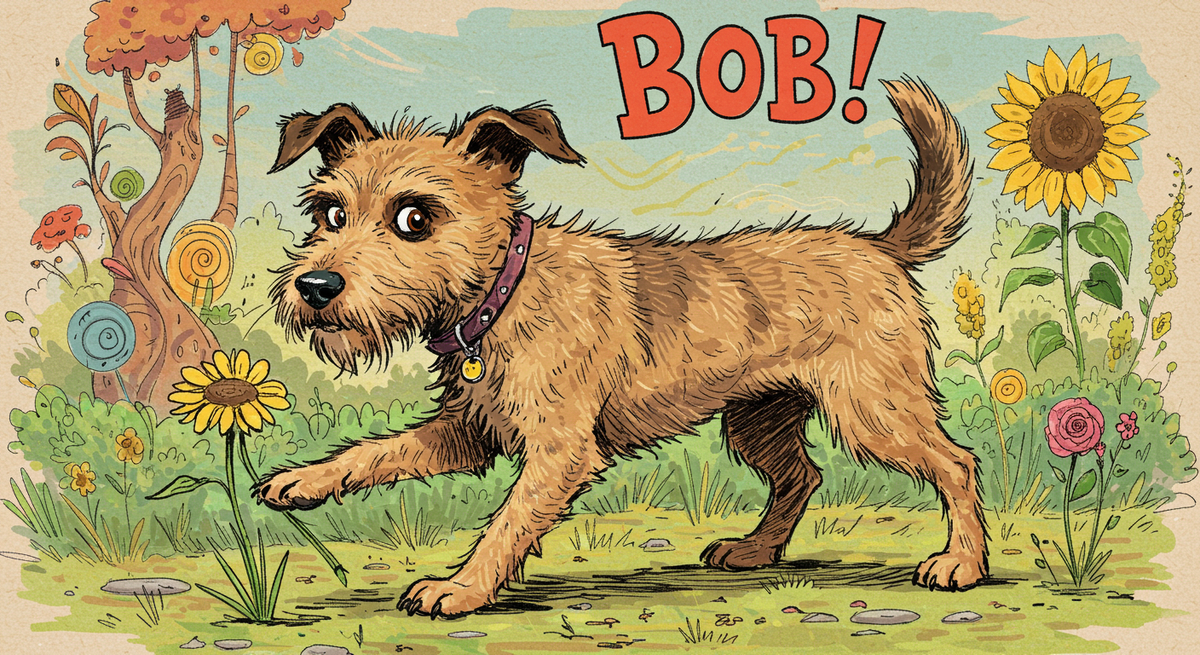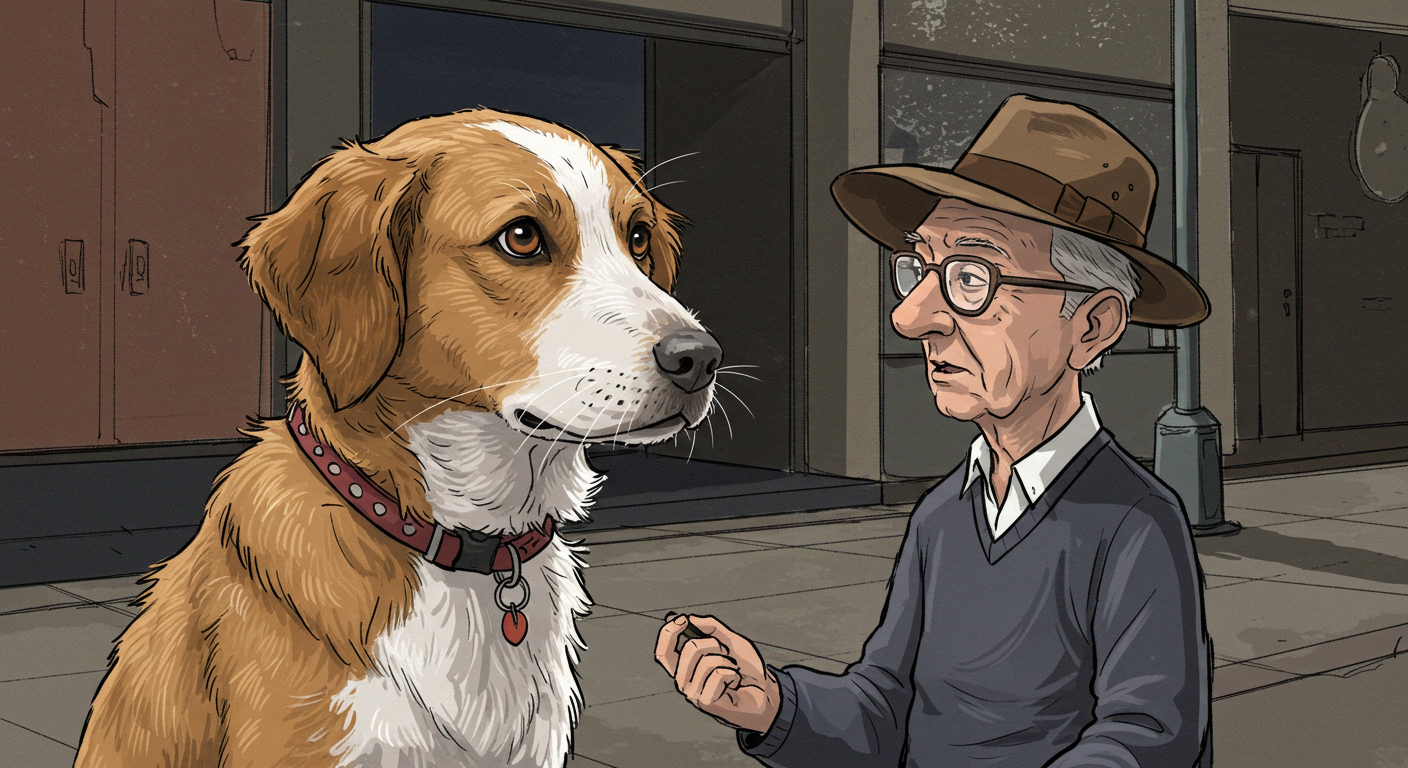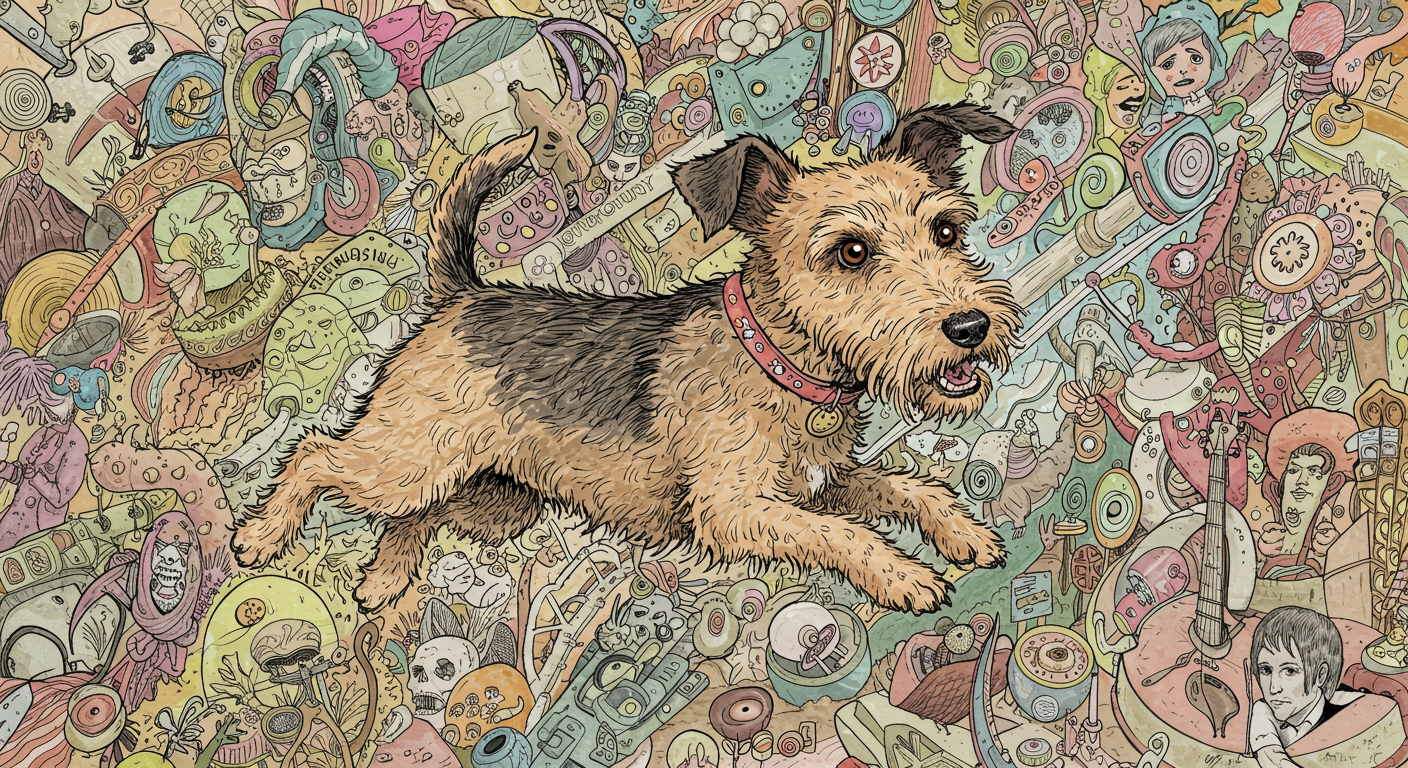TARIFFS AND TREATS: A BOB'S-EYE VIEW

Bob the dog perched his furry haunches on the living room carpet, one ear twisted skyward like an antenna seeking extraterrestrial wisdom. The television burped images of a man explaining—with the confidence of Napoleon planning the Russian campaign—how America forced other nations to empty their pockets through the mystical alchemy of tariffs.
"Bullshit," thought Bob, though his primitive canine larynx only produced a quantum-disturbing rumble. In that moment, Bob experienced something extraordinary—his consciousness briefly merged with every dog who had ever lived, a collective canine hivemind stretching back to the first wolf who decided humans might be useful dinner providers. This momentary transcendence granted him economic clarity no human economist could achieve.
Unlike humans with their fancy degrees, Bob never needed economic propaganda. His wisdom came directly from the Great Cosmic Hydrant of Truth.
Just last Tuesday—a day that smelled of rain and the neighbor's affair—Mrs. Em stood in the pet store aisle. Her jaw hung open like a broken garage door as she clutched a package of Tibetan yak chews.
"Twelve fucking dollars more than last month?" She waved the package like plutonium. "For the same damn chew?"

The store owner—a failed marine biologist from the Reagan era—shrugged with cosmic resignation. "Tariffs. Twenty-five percent on Himalayan imports now. Apparently, yaks have become a national security threat."
At that moment, Bob realized what humans refused to acknowledge: tariffs aren't magical spells that extract money from foreign governments. They operate like invisible pickpockets rifling through American wallets while consumers stand hypnotized by political theater too shallow to drown a dust mite.
The universe—that cosmic comedian whose punchlines take millennia—had concocted an economic paradox absurd enough to make Diogenes stop searching for an honest man and start day-drinking instead. Politicians claimed victory by hiding costs in price tags rather than tax forms, while blaming foreign manufacturers.
Bob's family tightened their financial sphincter. His walks shortened by exactly 1.7 minutes. The air conditioner hummed two degrees warmer. His premium treats vanished, replaced by store-brand alternatives that tasted like artificial bacon-flavored broken dreams.
The television man continued his economic masturbation. Bob tilted his head at precisely the angle that humans interpreted as adorable puzzlement but which, in canine language, expressed contempt profound enough to curdle milk at fifty paces.

When Mrs. Em crashed through the door that evening, Bob performed his dance of enthusiastic insincerity. She carried Chinese takeout—ironic considering the economic warfare. Bob positioned himself at Mrs. Em's feet (not Marjorie's—apparently, the universe had temporarily glitched, correcting itself with the cosmic equivalent of "my bad").
As the aroma of General Tso's chicken wafted around him, Bob experienced his second transcendent episode. In a vision that would have made Carlos Castaneda reach for stronger peyote, Bob saw the entire economic system as an elaborate game created by aliens who bet on which species would bankrupt themselves first. Humans, with their mysterious ability to work against their own interests while congratulating themselves for their cleverness, were the current favorites.
Rather than write his manifesto "Why Humans Are Idiots: A Treatise on Fiscal Self-Deception," Bob embraced cosmic wisdom: adapt to absurdity, find joy in simplicity, and tactically urinate on deserving plants.
Perhaps in this philosophy—balancing acceptance, pleasure, and strategic rebellion—economists might discover the Sacred Equation of Existence that has eluded them since the first caveperson traded a shiny rock for an extra mammoth steak. The true path to enlightenment isn't found in economic theories or political dogma, but in knowing precisely which garden to water with one's disdain and when to simply enjoy the dropped chicken that fate occasionally tosses our way.
After all, as Bob understood and Dorothy Parker once almost said: "You might as well live... but pee on someone's petunias while you're at it."